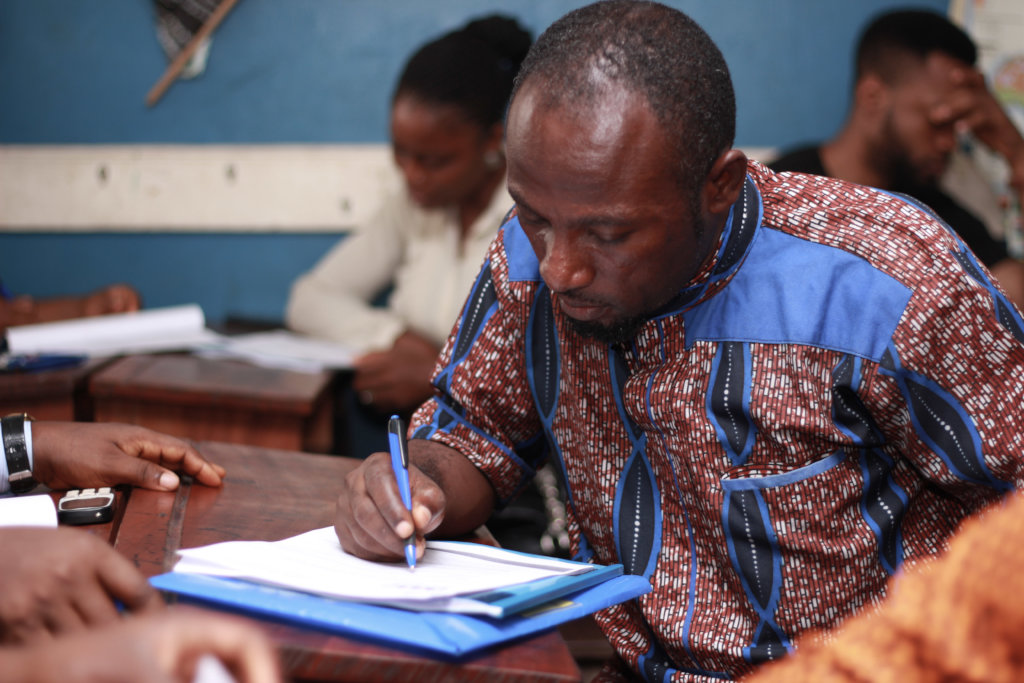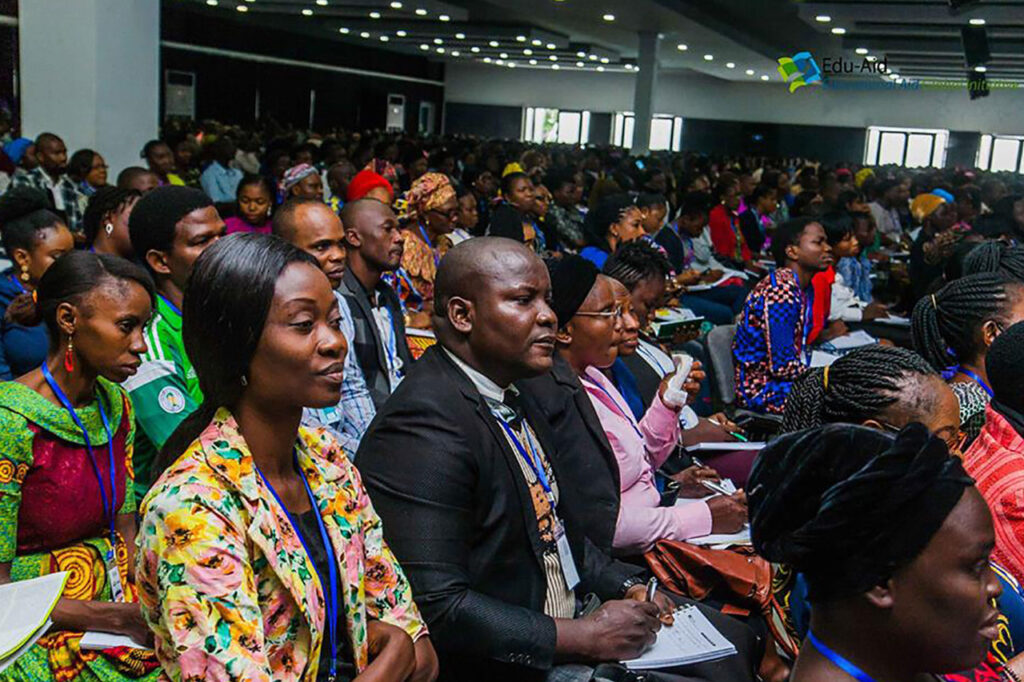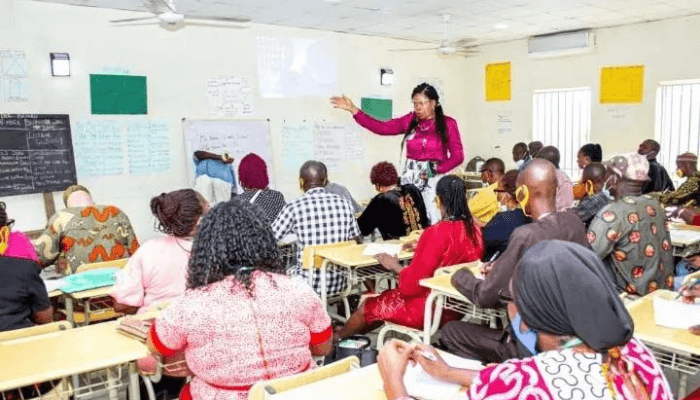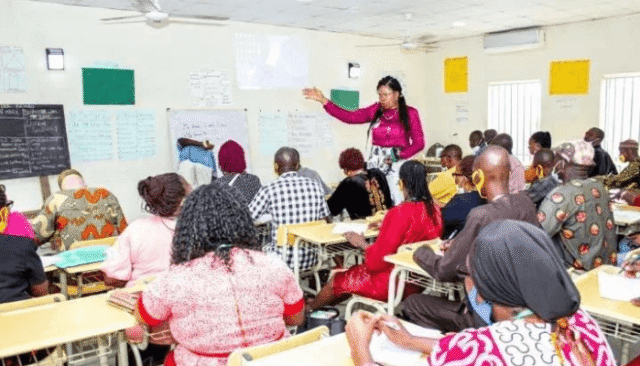At the Summer Fellowship for Innovative Teachers (SFIT) conference held at Kingsville Schools, Jahi, Abuja, Ambassador Emmanuel Idiagi, Country Director of the Murdock-Thompson Centre for Teachers, issued a call that resonated across the room: “Teachers’ reward should not only be in heaven.”
In that simple sentence, he captured the deep frustration of Nigerian educators who continue to face low pay, inadequate welfare, and dwindling respect. His message was clear—improving teachers’ welfare in Nigeria is not a luxury; it is a necessity if the country is serious about preparing the next generation.
The Abuja event gathered passionate voices from across the education sector, each stressing that if teachers remain unmotivated, Nigeria’s dream of a globally competitive education system will remain out of reach. Idiagi’s words challenged government officials and policymakers to move beyond rhetoric and make measurable investments in the welfare of teachers.
Table of Contents

SFIT: Inspiring Teachers to Innovate Against the Odds
The SFIT conference is not just an annual gathering; it is a movement designed to celebrate teachers who break boundaries and reshape learning in their classrooms. By creating a community where innovation is celebrated, the programme has become a lifeline for teachers often working under harsh conditions.
Segun Abiri, Chairman of the Governing Council of the Institute of Non-Formal Education Practitioners (INFEP), explained that SFIT is built on the belief that lasting change in Nigeria’s education system starts with empowered teachers. When teachers are trained, supported, and recognised, their creativity can influence thousands of young lives.
Take the example of Agnes Singbo-Oluwatudimu, a past awardee, who reminded fellow educators that innovation is not always about expensive technology. It can be as simple as shifting from rote memorisation to encouraging pupils to think critically and solve real-life problems.
Emmanuel Olufemi, the 2025 SFIT project manager, summed it up: “When teachers are motivated, they can transform lives and, by extension, change the future of our country.”
The Harsh Reality: Welfare Gaps That Weaken Education
Despite government promises, Nigeria’s teachers continue to struggle. In 2020, the federal government announced ambitious welfare measures—special salary scales, improved retirement age, housing support, and payment of children’s school fees. Years later, many of these remain largely unimplemented.
The result is a profession on the brink. Teachers in public schools often face overcrowded classrooms, lack of instructional materials, and inconsistent salaries. The UNESCO-recommended teacher-pupil ratio of 1:25 at the primary level is almost impossible in many Nigerian schools, where one teacher may face 60 to 80 pupils.
This chronic neglect has created a crisis of morale. Young graduates rarely see teaching as a desirable career, and many experienced teachers abandon classrooms for more lucrative jobs. In rural communities, schools are increasingly understaffed, leaving children without access to quality education.
The pandemic only deepened the cracks. With little or no digital infrastructure in public schools, many teachers were left behind during remote learning. For those already demoralised by unpaid salaries and poor working conditions, the experience confirmed that the system does not prioritise their welfare.
When teachers are poorly treated, students pay the ultimate price. Learning outcomes fall, literacy gaps widen, and the entire society suffers from a weakened human capital base.

A Roadmap for Action: How Nigeria Can Truly Value Its Teachers
Ambassador Idiagi’s speech was not simply an emotional appeal—it was a demand for action. For Nigeria to reverse decades of neglect, a clear roadmap must be followed.
a) Deliver on Welfare Promises
The special salary structure, retirement age benefits, and allowances announced in 2020 must be implemented nationwide. Policies without execution only breed distrust. Teachers need to feel the government’s commitment in their bank accounts and daily lives.
b) Invest in Professional Development
Education evolves daily. Teachers need regular training, workshops, and fellowships that inspire creativity and innovation. SFIT is a good model, but government must scale such efforts nationally so teachers in every state can access growth opportunities.
c) Establish a Teachers’ Welfare Commission
Experts, including the Teachers Registration Council of Nigeria (TRCN), have repeatedly called for a national Teachers’ Welfare Commission. Such a body could monitor policies, standardise welfare packages, and ensure that states implement federal directives uniformly.
d) Recognise and Celebrate Educators
Beyond financial incentives, respect and recognition matter. National and state awards, innovation grants, and public acknowledgment can restore pride to the profession. When teachers feel valued, they give more of themselves to their students.
e) Make Teaching a Career of Choice
The ultimate goal is to restore teaching as a noble and respected profession. That requires dignified pay, safe work environments, and opportunities for advancement. Only then will bright young graduates willingly choose teaching, rather than seeing it as a last resort.

Conclusion: Teachers as the Backbone of National Development
At the heart of this debate is a simple truth: teachers are the backbone of every nation’s development. They train the doctors, engineers, lawyers, entrepreneurs, and leaders of tomorrow. If Nigeria neglects its teachers, it risks undermining its own future.
Ambassador Idiagi’s words at SFIT remind us that this is not just an education sector issue—it is a national priority. By placing teachers’ welfare at the centre of policy, Nigeria can begin to heal its struggling education system.
Improved teachers’ welfare in Nigeria is not about charity or token gestures. It is about justice, dignity, and recognising that no nation can rise above the quality of its teachers. For every underpaid, unmotivated teacher, there are millions of children whose futures hang in the balance. It is time to match speeches with action, and to finally treat teachers as the nation-builders they truly are.
Join Our Social Media Channels:
WhatsApp: NaijaEyes
Facebook: NaijaEyes
Twitter: NaijaEyes
Instagram: NaijaEyes
TikTok: NaijaEyes
READ THE LATEST EDUCATION NEWS













![Heartwarming Moment: Priscilla Ojo and Son Rakeem Reunite with Juma Jux in Tanzania [VIDEO] Priscilla Ojo](https://naijaeyesblog.com/wp-content/uploads/2025/09/Reunited-Priscilla-Ojo-says-as-she-celebrates-son-Rakeem-one-month-Kemi-Filani-blog-min-768x512-1-1-180x135.avif)


























